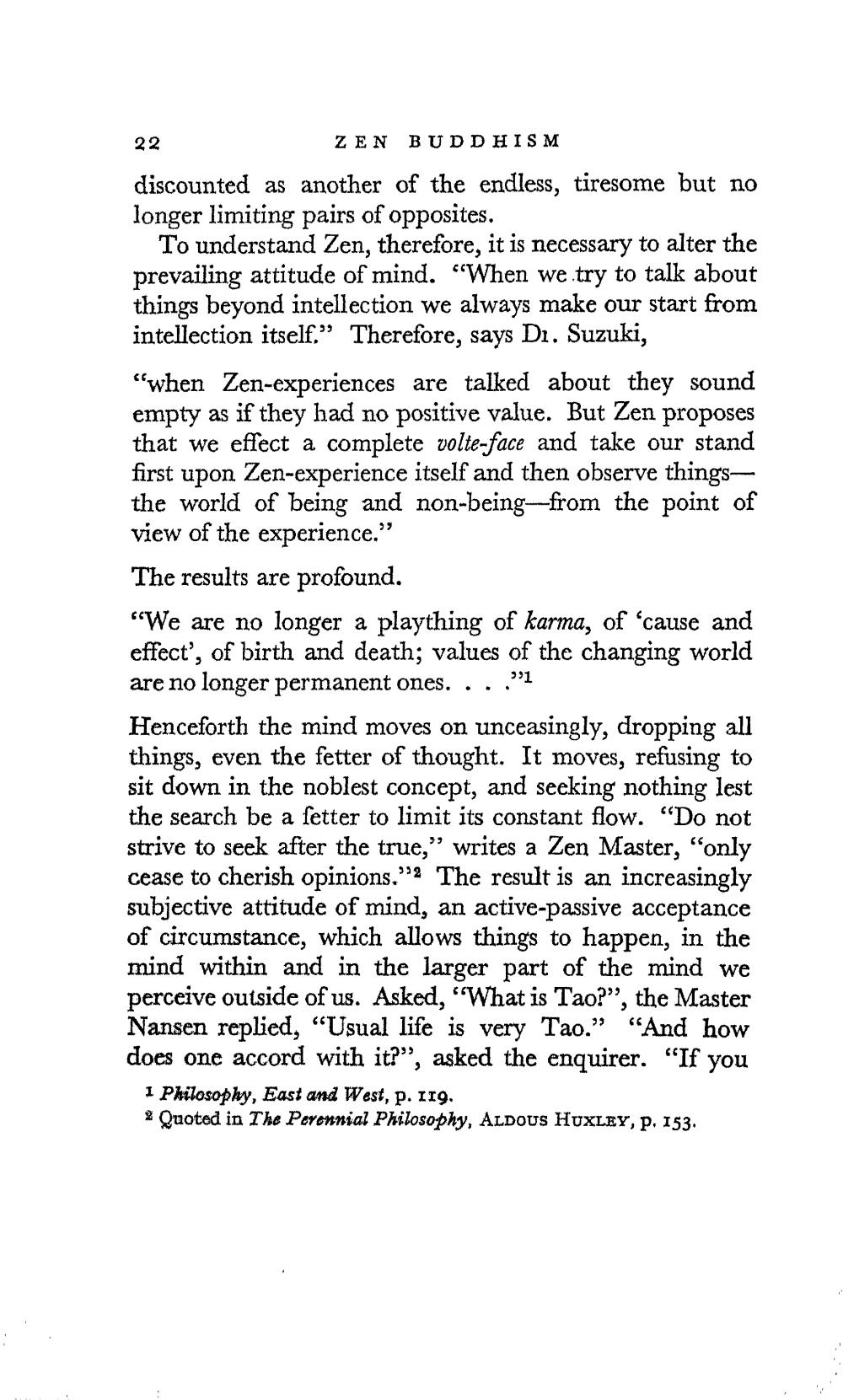________________
22
ZEN BUDDHISM
discounted as another of the endless, tiresome but no longer limiting pairs of opposites.
To understand Zen, therefore, it is necessary to alter the prevailing attitude of mind. “When we try to talk about things beyond intellection we always make our start from intellection itself.” Therefore, says Dı. Suzuki, "when Zen-experiences are talked about they sound empty as if they had no positive value. But Zen proposes that we effect a complete volte-face and take our stand first upon Zen-experience itself and then observe thingsthe world of being and non-being-from the point of view of the experience.” The results are profound. “We are no longer a plaything of karma, of 'cause and effect, of birth and death; values of the changing world are no longer permanent ones. ..." Henceforth the mind moves on unceasingly, dropping all things, even the fetter of thought. It moves, refusing to sit down in the noblest concept, and seeking nothing lest the search be a fetter to limit its constant flow. "Do not strive to seek after the true," writes a Zen Master, "only cease to cherish opinions."2 The result is an increasingly subjective attitude of mind, an active-passive acceptance of circumstance, which allows things to happen, in the mind within and in the larger part of the mind we perceive outside of us. Asked, "What is Tao?", the Master Nansen replied, “Usual life is very Tao." "And how does one accord with it?”, asked the enquirer. “If you
1 Philosophy, East and West, p. 119. * Quoted in The Perennial Philosophy, ALDOUS HUXLEY, P. 153.




